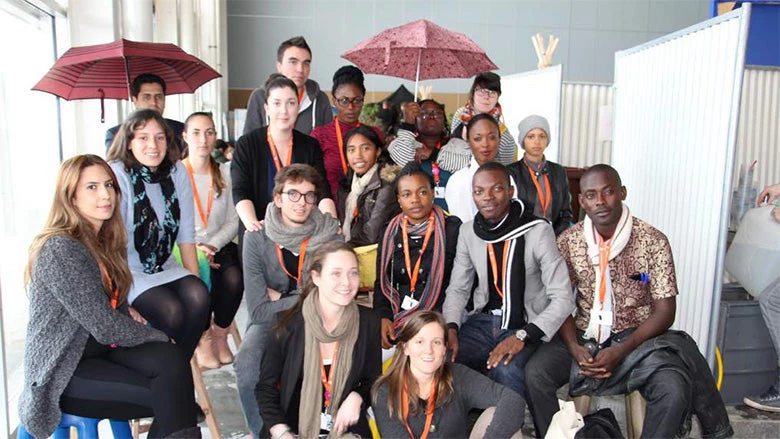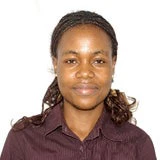
The Earth’s temperatures are rising and it’s no secret. As an African, originally from Cameroon, I have personally witnessed the damaging effects and know that my continent and my people are significantly at risk if major steps are not taken to bring down the heat. While solutions and concrete actions exist to fight against climate change, they are only half the battle. The other half lies with the appropriation of these solutions by youth and future generations.
I decided to personally get involved in the fight against climate change by starting an organization in Cameroon called the Young Volunteers for the Environment. We work hard to develop initiatives that put youth and communities at the center of climate change adaption solutions such as the Clean Energy for Africa project which promotes improved cook stoves and renewable energy to communities, and the Energy and Climate Education project in schools that aims to instill eco-responsible behavior in children at a young age so that they become ambassadors for the planet’s protection in the future. Through these initiatives more people were able to understand the impacts of climate change and possible solutions thanks to our local branches in Yaoundé, Douala, Mbalmayo, Buea and Bafia.
The Government of Cameroon is also actively engaged in climate change adaptation, having created the National Climate Change Observatory for research and developed a national Climate Change Adaption Plan. It is also using principals from the United Nations’s Reduced Emissions from Deforestation and Forest Degradation (REDD+) proposition to curb deforestation and consult with indigenous populations regarding the use of forest land to ensure their wellbeing. Cameroon also submitted its Intended Nationally Determined Contributions (INDCs) which sets the level of reduction of its emissions at 32% by 2035.
However these efforts won’t be enough. Young people across Africa must mobilize and band together to lobby their governments to do more, and to have our voices heard on the international stage. With the creation of the Conference of Youth (COY), the 11th edition of which was held in the lead up to the COP 21 meetings, young committed individuals from all over the planet were able to propose their solutions and best practices which were then communicated to the COP 21 delegations around the negotiating table. As a participant, I made it my mission to ensure that youth recommendations regarding water resource management, disaster risk management, and climate resilience—my areas of expertise, were heard. And they were.
Our COY 11 group presented our report to Michaëlle Jean, Secretary General of the Organisation international de la Francophonie, Ségolène Royal, French Minister of Energy, Ecology, and Sustainable Development, and Annick Girardin, Secretary of State for development and the Organisation international de la Francophonie. Supported by the Franco-Quebecois Office for Youth, the report was drafted by a delegation of 52 young people aged 17-35 years from 17 countries (Burkina Faso, Togo, Benin, France, Cameroon, Canada, Haiti, Tunisia, Chad, Morocco, Cabo Verde, Mali, Comoros, Ukraine, Senegal, Mauritania and Madagascar). It outlined recommendations on four priority themes related to the management of water resources: water sharing, water and health, water and agriculture, and climate hazards.
Water resource management has yet to be a big ticket item in COP negotiations on climate change, however it is cited as a priority for adaptation measures. Our hope is that our advocacy will shine the spotlight on water resource management and help make it a priority in the fight against climate change both in the context of the next COP, and within national policies and strategies. Ms. Royal, upon delivery of the report stated: “Island states will surely disappear if nothing is done. Rising sea levels and water resource management needs to be urgently discussed in the negotiations on climate change".
The outcome of the Paris COP 21 was a historic moment, because for the first time, countries acknowledged the reality of climate change through a binding international treaty. I felt like world leaders finally thought about future generations—about us, the youth! It has given me strong motivation to continue my efforts and bring as many young Cameroonians along with me. However, it wasn’t all that I had hoped for, as there was no explicit mention of water resource management included in the Paris Agreement, despite the fact that water is central to the fight against climate change. Furthermore, it will be very challenging to ensure that this agreement satisfies the most vulnerable regions of the world and maintains global warming levels to under 1.5 °C. But we have to try. Our future depends on our commitment to preserving the valuable resources of our planet.


Join the Conversation